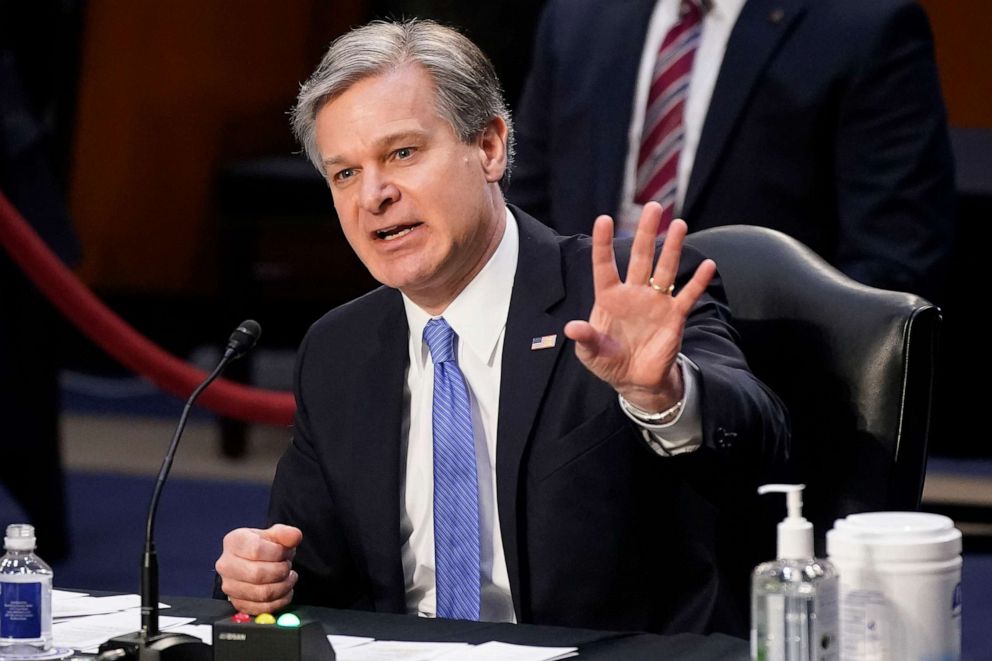What is FISA? Surveillance law and key spy program in spotlight
Section 702 of the law is under scrutiny on Capitol Hill.
A bill to reauthorize a spy program considered critical to U.S. national security is in the spotlight on Capitol Hill.
The House on Friday voted to reauthorize and reform parts of the Foreign Intelligence Surveillance Act after fierce debate on Section 702 of the law.
The legislation also needs to pass the Senate ahead of the April 19 reauthorization deadline.
Here is what to know about the surveillance measure.
What is FISA?
The federal law sets out rules and procedures for gathering foreign intelligence through electronic surveillance, physical searches, pen registers and more. It established the U.S. Foreign Intelligence Surveillance Court (FISC) and the U.S. Foreign Intelligence Surveillance Court of Review.
It was passed in 1978 in the aftermath of the Watergate scandal and other intelligence controversies unearthed around that time, including surveillance against U.S. dissidents such as anti-war protesters and Martin Luther King, Jr.
It has been amended several times since then, including after the Sept. 11, 2001, terrorist attacks.
What is Section 702?
The FISA debate on Capitol Hill largely centers around Section 702, which allows the U.S. government to collect electronic communications of non-Americans located outside the country without a warrant.
But it sometimes results in the collection of data on Americans who are in contact with those surveilled individuals, making it controversial.

Critics of the program, such as civil liberties groups like the ACLU, have called for requiring a warrant to access the data of those Americans. Some lawmakers are also opposed to reauthorizing the program without an amendment requiring a warrant or other reforms to protect Americans' privacy.
Intelligence officials, though, have warned a warrant amendment would cripple a program relied upon for counterterrorism.
FBI Director Christopher Wray said if Congress were to impose such a requirement, it would "blind ourselves to intelligence in our holdings."

"If we lost 702, we would lose vital insight into precisely the threats Americans expect us in government to identify and counter," national security adviser Jake Sullivan told reporters.
That includes, he said, "terrorist threats to the homeland; fentanyl supply chains bringing deadly drugs into American communities; hostile governments' recruitment of spies in our midst; transnational repression by authoritarian regimes; penetrations of our critical infrastructure; adversaries' attempts to illicitly acquire sensitive dual-use and military commodities and technology; ransomware attacks against major American companies and nonprofits; Russian war crimes; and more."
When has FISA been used?
Section 702 was used to target al-Qaeda leader Ayman al-Zawahiri, who was killed in a U.S. drone strike in August 2022. Al-Zawahiri was Osama bin Laden's deputy and helped coordinate the Sept. 11 attacks.
Section 702 played a role in locating ISIS commander Hajji Iman, who was killed by U.S. Special Operations Forces in 2016, according to the Office of the Director of National Intelligence.
The agency added that it has also been used to help the government gain insight on plans to smuggle fentanyl and other drugs into the U.S. and to mitigate ransomware attacks on U.S. infrastructure.
Former President Donald Trump and some of his conservative allies in Congress have broadly criticized FISA after surveillance against Carter Page, a former adviser to his 2016 presidential campaign. Trump this week urged lawmakers to "KILL FISA," which likely contributed to its demise earlier this week.
The Justice Department admitted errors in the FISA applications for surveillance on Page, however the ordeal didn't include Section 702 but rather another provision of the law.
ABC News' Jay O'Brien, Lauren Peller, Arthur Jones and Alexander Mallin contributed to this report.




